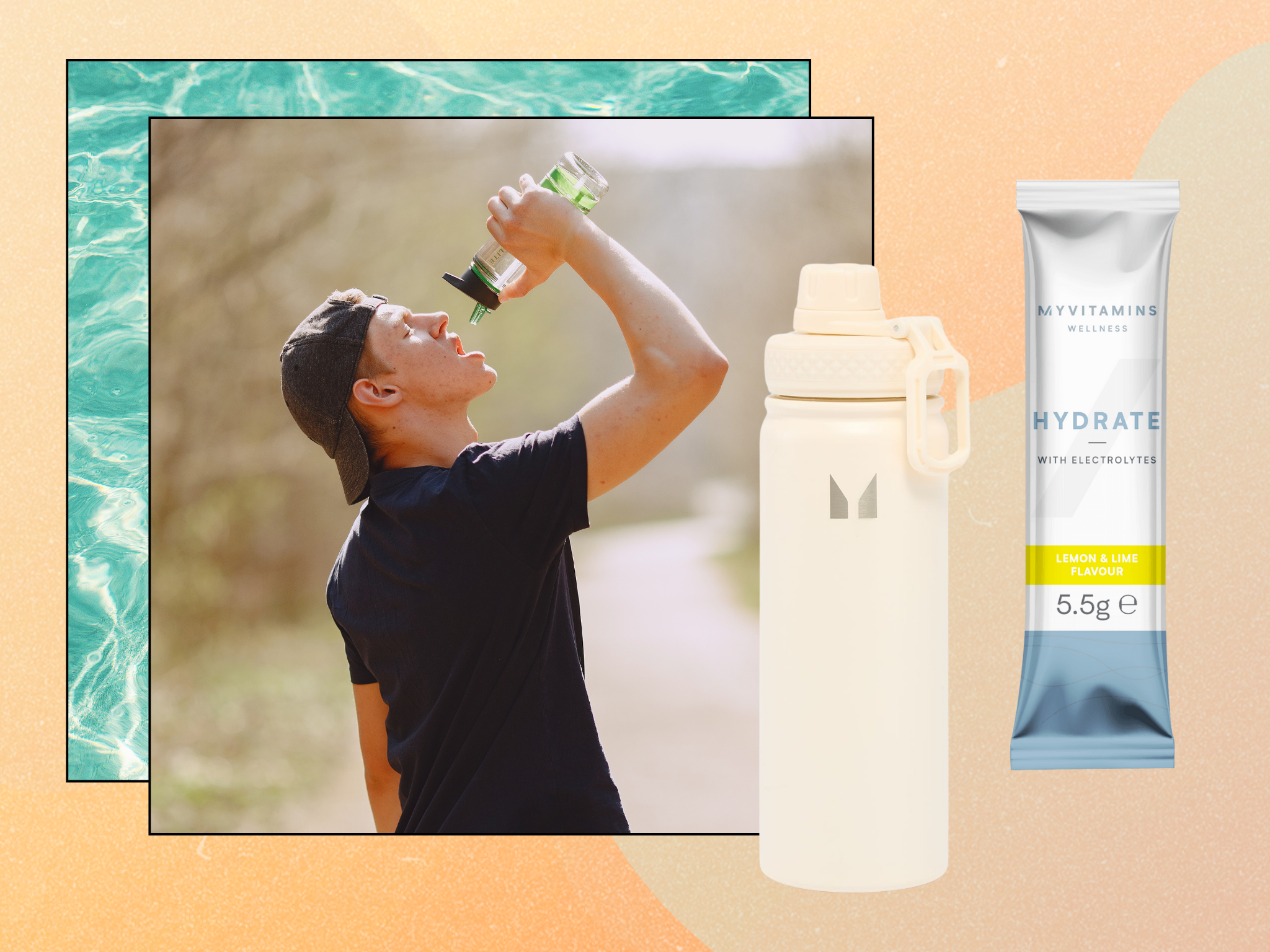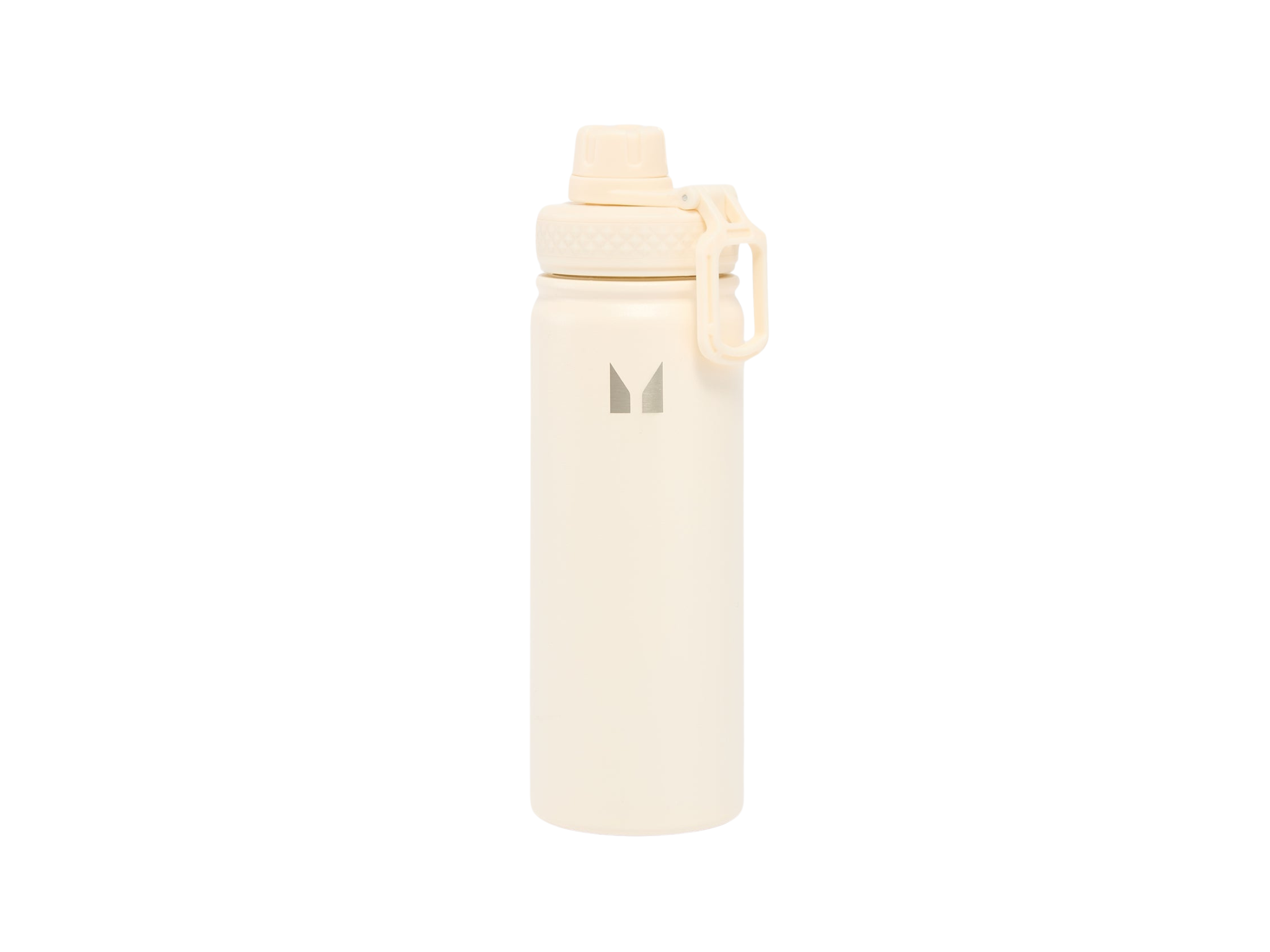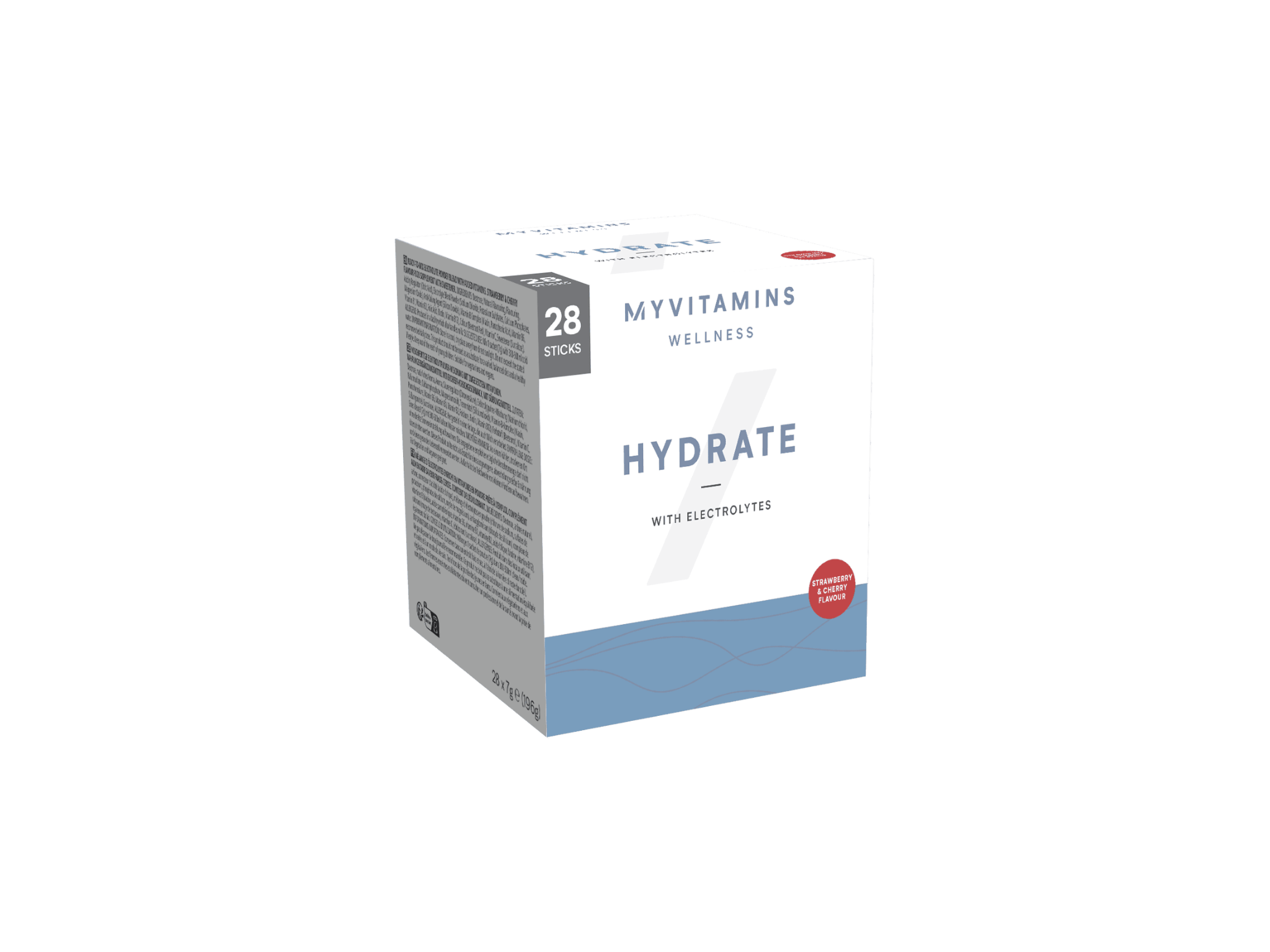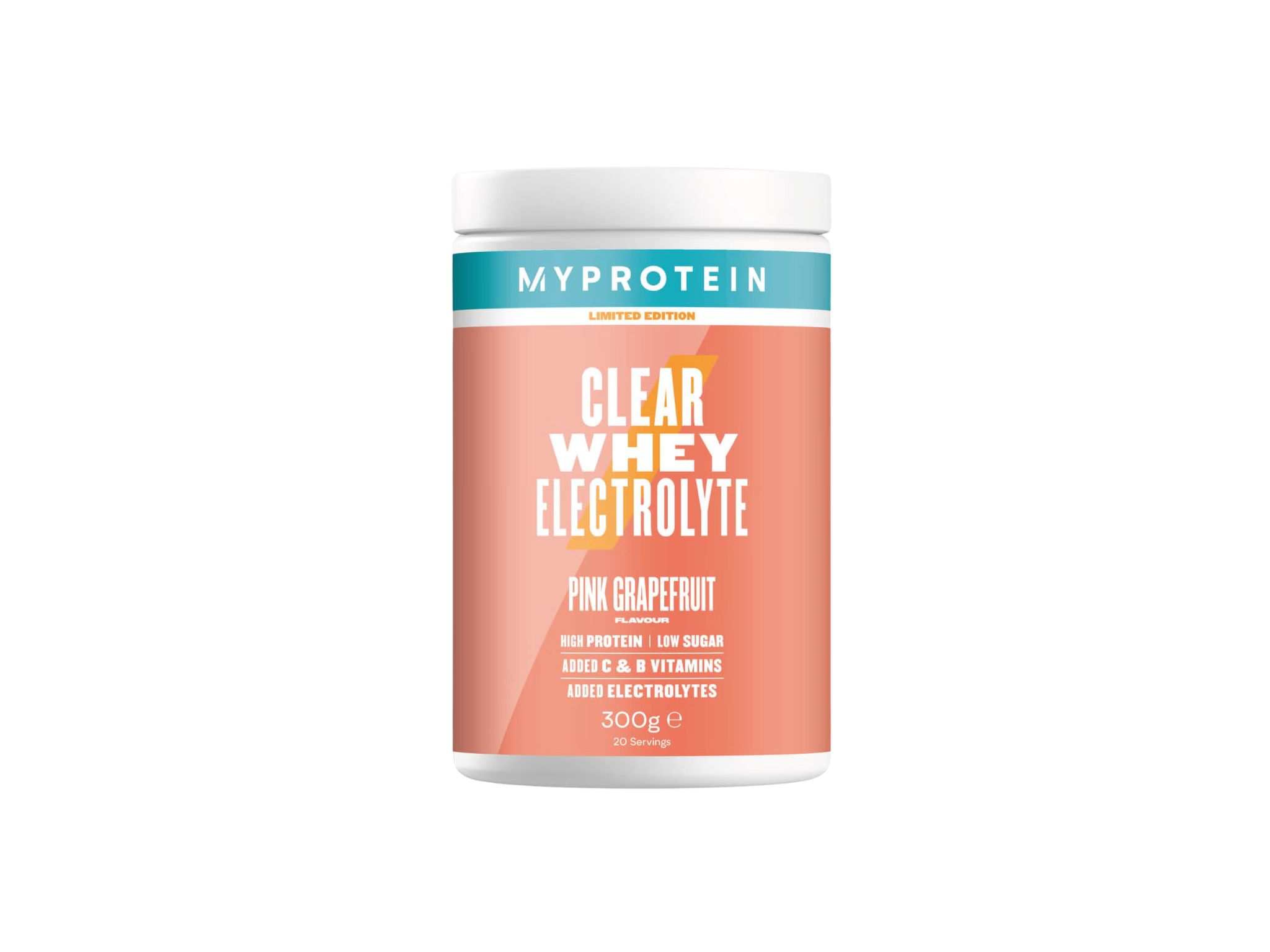How to stay hydrated in hot weather, according to experts
There’s more to hydration than just drinking extra water, especially in a heatwave

Your support helps us to tell the story
From reproductive rights to climate change to Big Tech, The Independent is on the ground when the story is developing. Whether it's investigating the financials of Elon Musk's pro-Trump PAC or producing our latest documentary, 'The A Word', which shines a light on the American women fighting for reproductive rights, we know how important it is to parse out the facts from the messaging.
At such a critical moment in US history, we need reporters on the ground. Your donation allows us to keep sending journalists to speak to both sides of the story.
The Independent is trusted by Americans across the entire political spectrum. And unlike many other quality news outlets, we choose not to lock Americans out of our reporting and analysis with paywalls. We believe quality journalism should be available to everyone, paid for by those who can afford it.
Your support makes all the difference.We all love hot weather and a chance to enjoy time outdoors. However, during a heatwave, your body can suffer, especially if you’re using excess energy and not hydrating properly. We spoke to leading health experts to find out how much you should be drinking in the summer, especially on hot days, and how to hydrate in the best ways if you’re feeling the heat.
The human body is incredibly smart and is skilled at changing temperature and responding to its surroundings. However, if you’re used to more temperate climates, a sudden rise in heat can make you feel unwell if you’re not hydrating properly. The human body’s natural temperature is around 37C but a change of just a few degrees can have a severe impact – if your body temperature exceeds 40C, you could be at risk. Staying cool and making sure you’re hydrating optimally can mean you’ll have to adapt your behaviour but these changes to your everyday routine could make all the difference.
The obvious way to stay hydrated in summer is to drink more water. This means carrying a water bottle (£25, Myprotein.com) with you, especially if you wouldn’t usually leave the house with one.

Experts generally say you should be drinking two litres of water or more a day but the more fluid you lose while sweating, the more you’ll have to top up your body’s intake. Your fluid loss versus your intake is also dependent on several factors like your size, how much energy you’re using during the day and how much you sweat.
How much should you drink in hot weather?
Dr Alasdair Scott, science director at Selph says that “it’s massively important to stay hydrated during a heatwave. Your body uses water to produce sweat, which evaporates and cools you down. Without adequate hydration, this cooling mechanism becomes less effective. Proper hydration also helps maintain blood volume, allowing your circulatory system to function optimally and carry heat away from vital organs. When it’s hot, you lose more water through sweating, and this needs to be replenished to maintain proper hydration levels.”
Dr Scott advises aiming to drink about 2l to 2.5l of fluid on a normal day, but during a heatwave, you’ll need to increase this to around 3l to 4l. Of course, how much you’re drinking will also depend on how active you are in the heat.
You may dislike the idea of skipping your outdoor workout, but Patrick McClure, health expert and CEO of WINIT Clinic recommends avoiding any strenuous activity during the hottest part of the day. “Try to exercise during the cooler periods of the day, outside of the peaks between 10am and 4pm. If you must be outside at this time, you should take measures to protect yourself. Wear a hat, carry a bottle of water and put reminders on your phone to drink every hour or after every two hours, even if you don’t feel like it.”
Read more: I add electrolyte sachets to my water every day, here’s why it’s a must
Topping up your water supply in increments is the best way to stay hydrated. Though it might feel refreshing to glug down a litre at a time, drinking little and often is actually better for staving off dehydration. And this doesn’t just count for the daytime. Professor George Havenith also recommends trying to drink two cups of water before bed and wetting your skin to remain hydrated while you sleep. This can be particularly effective if you’ve been exposed to heat for a longer period during the day.
“The evaporation of sweat from the skin surface provides an enormous cooling effect but uses our own body water supply, so can cause dehydration and electrolyte losses,” Havenith explains. “Simply applying water to the skin with a spray, or flannel mimics the powerful cooling effect of sweat evaporation and will preserve body water. Even lukewarm water will do the trick, but cool water will provide some extra benefit.”
How to stay hydrated in hot weather
Even if you’re drinking the optimal amount of water, you may be losing vital salts and minerals through your sweat much faster than normal and this can make you feel dehydrated, even if you’re drinking your 2 to 4l. By adding electrolytes (was £30.99, now £12.30, Myprotein.com) to your water, you can top up vital minerals and salts and absorb them as quickly as you lose them. This is especially important if you’re more active during the hot weather or tend to sweat more when you’re warm.

Electrolytes can also counter the effects of other sources of dehydration, such as caffeine and alcohol. Experts recommend avoiding both these drinks during hot weather because they’re more likely to dehydrate your body and act as a diuretic. If you do want to drink caffeine and alcohol, make sure you have one glass of water for every caffeinated or alcoholic drink and add an electrolyte drink or easy-to-use sachet to your daily intake of fluid.
What you eat on a hot day can also impact your hydration levels. Dr Scott of Selph advises avoiding the ice cream and instead, eating spicy foods. “It may come as a surprise,” he explains, “but ice cream can actually make your body warmer. Ice cream is generally high in fat, protein and carbohydrates, which can heat up the body whilst it digests food. Yes, you will have the instant ‘cooling’ sensation when you eat it, but then as it is digested, you will feel warmer as your body has to provide energy to digest it.”
Complex carbohydrates and whole grains, such as brown rice, can also be hard for the body to digest and can therefore increase your body temperature. Anything that contains complex carbohydrates and highly processed foods will generally be more warming than cooling.
Scott explains that to keep you cool, it’s a better idea to eat fruit and vegetables that have a high water concentration, such as watermelon, cucumber, strawberries, lettuce and tomatoes, courgette and peppers. These foods are easy for the body to digest due to having high water content, so they will help you to stay hydrated and well-nourished.
“Cold soups such as gazpacho are also a great way to cool down while getting lots of vitamins and minerals into your diet,” Says Scott.

You can also add supplements to your diet that help with water retention and hydrate the body with added electrolytes. For example, if you usually have a protein shake or add a protein supplement to your meals, you can swap your usual powder for a clear whey hydrate (was £24.49, now £13.20, Myprotein.com). This will top up vital minerals lost through sweat and give your body extra energy without adding extra complex carbohydrates that your body will need to work harder to digest.
Ultimately, your food and water intake can be crucial in determining how well you deal with the temperature on a hot day, and you’ll benefit from adjusting your workout times if you tend to exercise outdoors. Hydrating your body while you sleep and making sure that you’re not spending too much time in the sun can help lower your body temperature and give your body a chance to recover. Excess heat can feel incredibly taxing for the body, especially if you’re more active during the hottest part of the day.
Making simple swaps to your diet, your exercise type and time, your water intake and the types of fluids you drink can all help you to hydrate better and stay healthy during a heatwave. And if you don’t feel like you can skip your daily exercise and can’t fit in a workout during the cooler hours of the day, try seeking out an air-conditioned gym or studio to help maintain a healthy body temperature, rather than sweating it out at home or outdoors.
Looking for more ways to beat the heat? Read our guides to the best fans and portable air conditioner units